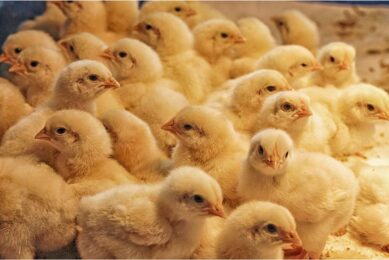Preventing Marek’s disease starts with the chick

Early immunisation of breeder chicks is a vital part of controlling an ever-virulent Marek’s Disease, according to a Spanish veterinary expert.
Dr Juan Carlos Abad from Cobb in Spain presented his view on the Pfizer Poultry Health Partnership days, held in Vienna, Austria this month. Abad said the industry has witnessed the disease grow in virulence over time, meaning a strategic control programme is more important than ever.
Economic losses
“From breeder suppliers to farmers and vaccine suppliers, the industry partners need to work together to control the virus. Many efforts have been made to control Marek’s since it was first recognised, but nonetheless the virus has increased in virulence over the years and this has provoked outbreaks of the disease even in flocks that were previously vaccinated.” The virus is a lymphoproliferative disease that, if not controlled, is capable of causing enormous economic losses in breeders due to the increased mortality and the negative impact on performance.
Route of vaccine administration
Dr Abad says route of vaccine administration also plays a role in disease control. “We know that early immunisation of breeder chicks is a key factor in the control of the disease, and in ovo vaccination is a very important tool for this control. In ovo vaccination enables the delivery of biologicals and pharmaceuticals to chick embryos through the egg shell.
Hygiene conditions
In addition to administration route, there are several other key figures that should play key roles in a control programme. “Preventing the chick from having contact with the field virus until it has developed an adequate immune response is critical and therefore the hygienic conditions of the rearing farm must be optimal. Likewise, the environmental conditions for chicks must be such that they do not create stressful situations which can slow down or reduce the immune response to vaccination.”
Related website:
Pfizer Animal Health













